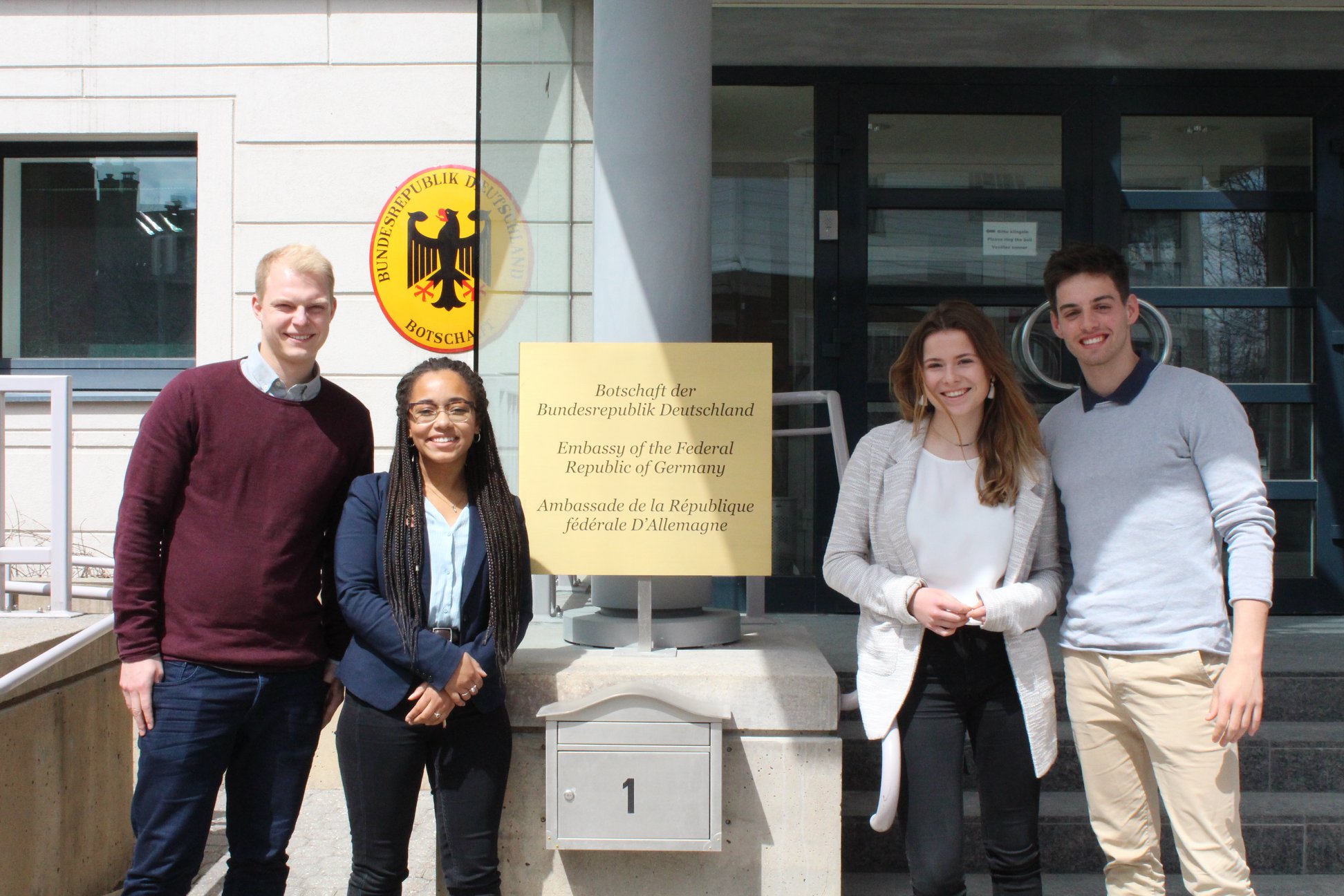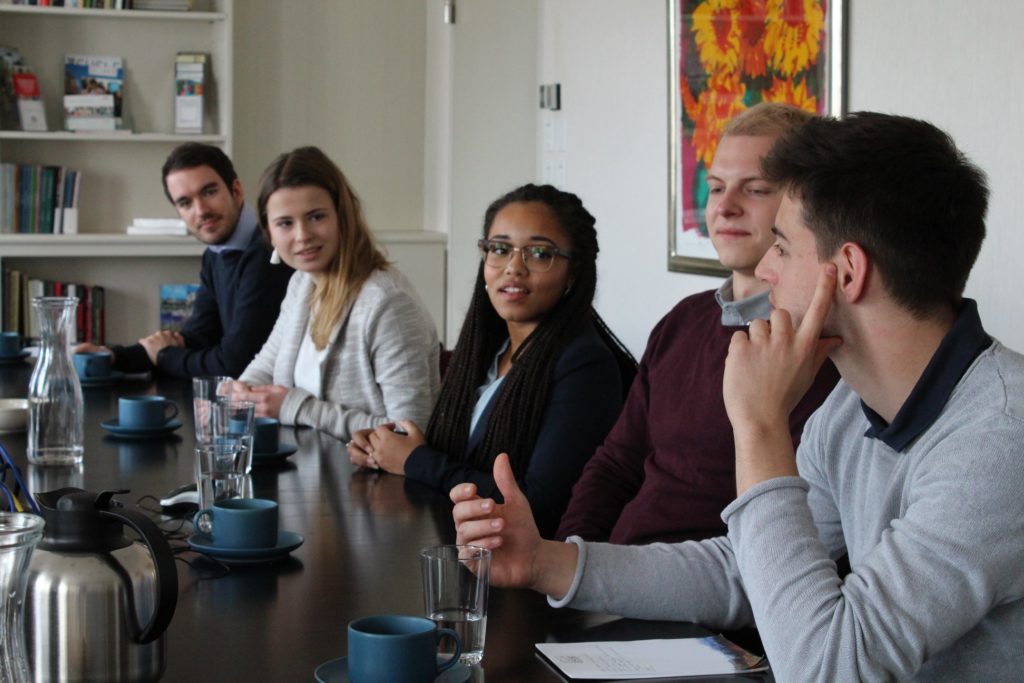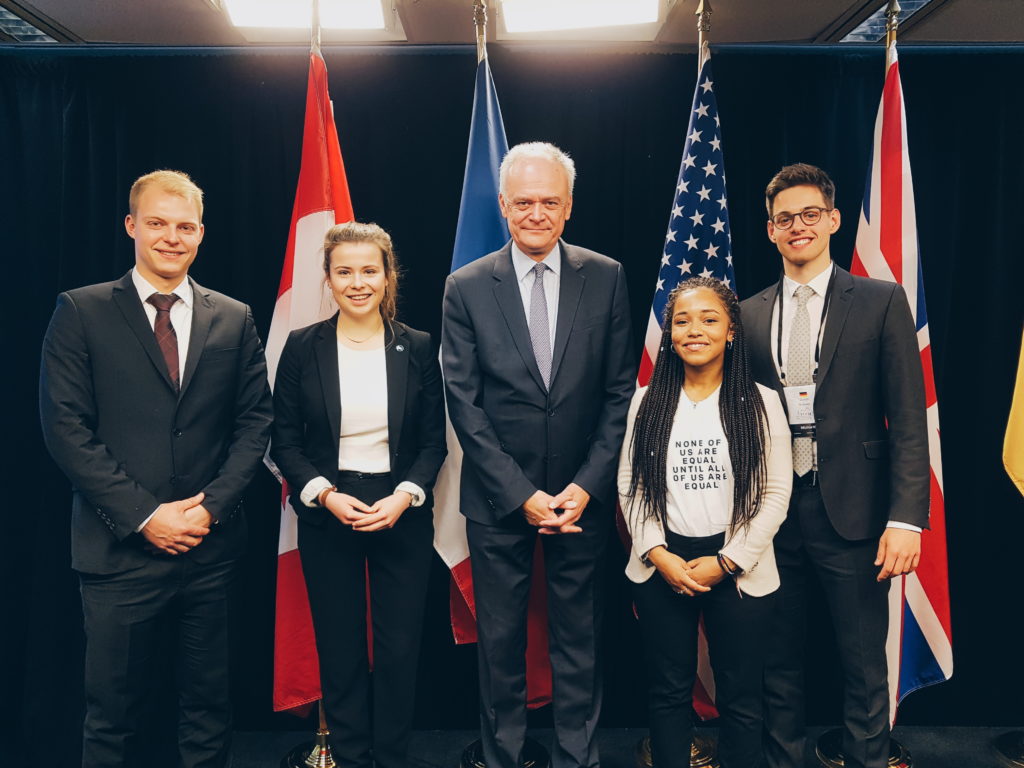
G7 and beyond: The German Y7 delegation in Canada
SoGerman spoke with the German delegation of the Youth 7 Summit, a pre summit to the G7 for young people, about what they want to achieve with the Y7, what their goals are and how the Y7 changed them.
The Y7 summit brings together young people from the G7 nations for three days to debate the issues discussed at the G7 summit in June. Luisa (Head of Delegation) is studying geography and is currently doing a semester abroad in London. Vanessa (Gender Equality) is finishing her bachelor in psychology. Both are Youth Ambassadors for the advocacy organization ONE. Daniel (Future of Work) is studying International Relations in Dresden and worked at the EU affairs. Simon (Climate Change) is studying International Relations as well and is currently in his gap year between Bachelor and Master.
(SoGerman) How did you prepare yourselves for the summit?
Vanessa: After we were accepted, we were invited to different working groups on our subjects and read a lot of literature. We then developed positions within our delegation and shared them with the others before the summit online. All our arguments had to be based on sources.
Luisa: The whole process basically began two weeks before the summit so you actually had the chance to agree on something in those three days at the summit.
Which qualities does one have to have to be successful at the Y7?
Luisa: I would say the awareness and the confidence to show how relevant young people are for global issues. You have to have a global consciousness to look beyond your own horizon and think about what works well at home and what you can maybe teach others.
Vanessa: Also you have to have the ability to listen. Listen to what the others have to say and maybe reevaluate your position according to that.
Simon: You cannot only think in national dimensions. We want to represent the views of young people from all over the G7 nations and therefore you have to find a position at the end that accurately reflects this.
Daniel: Empathy is also very important because you have to think about the position of others. Sometimes your point of view is not represented in the final paper. Then you have to make a compromise and try to insert it in another section.

Concerning your subjects, which are the most important points in the topics you worked on and which roles could Germany and Canada take in these issues?
Vanessa: In terms of gender equality, we especially focused on gender-based violence where we suggested a special advisor in every country that focusses on these issues. Amongst the G7, Canada is pioneering in this matter with Randy Boissonnault as LGBTQ+ advisor since 2016.
Simon: With regards to climate, we focused on three issues: decarbonization efforts to have a fully decarbonized economy in the G7, protection of people affected by climate change and, what the Canadians were concerned with the health of the oceans. Germany was a role model for our thoughts about decarbonization as well as climate change in general. To look whether a transition from fossil energy to renewables is indeed possible for a country.
Daniel: The debate about the future of work was dominated by automatization and what to do with the people affected by it. To help them, we focused on re- and upskilling programs being offered by the state. We defined core skills and global standards, like digital literacy, which everybody should be able to know. Also, we focused on the impact of new types of work for welfare systems. The less people work in classic 9 to 5 jobs, the more flexible our social systems have to be.
To see all those young people pushing for the same goals was like recharging your batteries for me.
What do you take home with you from the summit?
Daniel: A lot of optimism that there are many engaged young people and that it is actually possible to meet people directly involved in the G7 process. That was very inspiring for me.
Vanessa: Absolutely, it is easy to lose focus and motivation when you work in development cooperation or politics in general, when you see how rigid and inflexible some structures are. To see all those young people pushing for the same goals was like recharging your batteries for me.
Luisa: Of course one can ask: is it really necessary to fly thousands of miles to a conference concerned with climate protection? But the direct exchange on a personal level is so important and motivating. On the other hand, I was impressed by the direct exchange with so many officials, something that would not be possible in Germany. The Canadians organized it so well. And we learned that you can go to officials, be patient and persistent and then they will talk with you. We gained a lot of confidence at the summit.

The German Y7 delegation with Canadian G7 sherpa Peter Boehm.
Last question, what do you want to do after you finish your studies?
Daniel: Of course I’m interested in diplomacy and joining the diplomatic service. But the final word is not yet spoken and I could see myself in an international organization or in Germany in the international development field. I recently worked on the European level and this is something I could see myself doing as well.
Simon: I see myself going in a similar direction. I would also be interested in policy consulting or analysis. Not only writing articles but actively influencing policymakers on a European level.
Vanessa: Its funny, I’m often branded as being an outsider because I’m doing a degree in psychology but I do a lot of work on decision making and biases. Something inherently political. On top of that it is proven that diversity increases creativity tremendously and improves problem-solving. But in general, I’m very interested in development cooperation as well and hope I can leave my foot in the door working at an NGO or in the public sector eventually.
Luisa: I hear that question quite often and you rarely hear the job title “geographer”, so I would love to be able to initiate, accompany and communicate processes on a local and global level. This would be something I would love to do when I’m done with my studies. And I think it is something my past experience in natural sciences and communication could be a great asset for.
Thank you for your time.
(This interview was shortened)